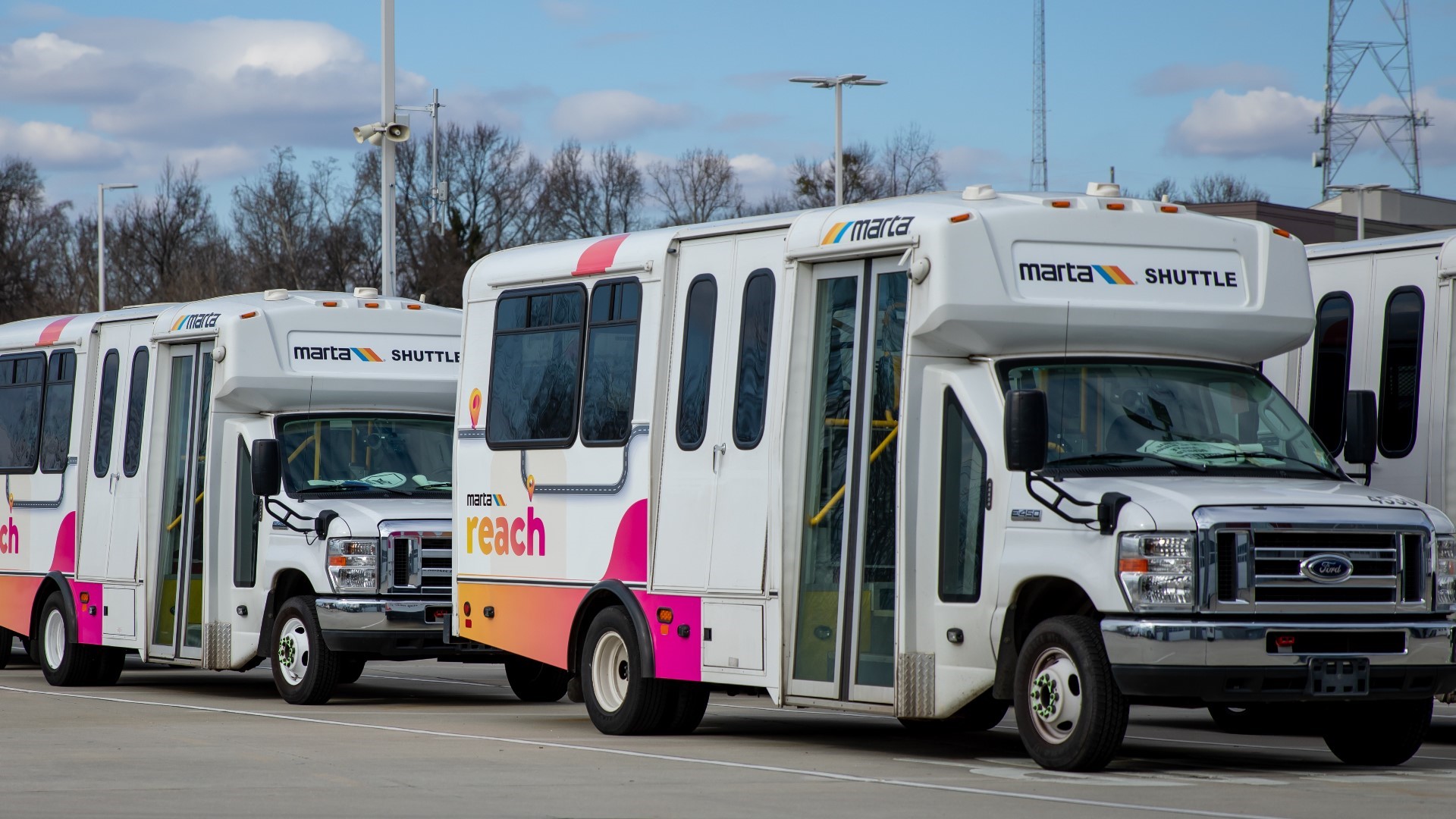ATLANTA — MARTA's Board of Directors adopted its new fiscal year operating budget and revealed it is ramping service back up to pre-pandemic levels.
Atlanta's rapid transit authority said it balanced its budget without increasing fares "on the heels of unprecedented fare revenue losses due to the pandemic." MARTA said this was made possible by its reliance on sales tax revenue and those line items experienced strong growth.
Its $1.3 billion budget puts MARTA in a position to resume operation levels from before the coronavirus pandemic and advance its capital improvement program, according to a news release.
“The biggest problem facing the transit industry right now, and frankly, most industries, is a shortage of workers. We are using every hiring platform and tool at our disposal to hire and train operators as ridership recovers,” MARTA Interim General Manager and CEO Collie Greenwood said in a news release. “We are aggressively recruiting employees, holding frequent job fairs, and offering signing bonuses in order to stay competitive. As people return to MARTA, we must be able to meet the service demand.”
MARTA said ridership demand has increased, with its trains seeing more passengers than its transit buses. Though Georgia is seeing record-high gas prices, these climbing fuel costs have become an opportunity to gain customers without impacting MARTA’s bottom line, the transit authority said.
Leaders explained its logic briefly in a prepared statement.
"A bus uses the same amount of fuel whether carrying two people or 20, and MARTA hedges a portion of its fuel costs to protect against price spikes," a spokesperson for MARTA said.
They added electricity-powered trains and fully electric buses, the first of which were placed into service this spring, are immune to rising fuel costs.
MARTA said it is also exploring other ways to gain ridership including a redesign of its bus network to ensure service meets the changing demographics. The transit authority also launched an on-demand transit pilot program to connect those in areas underserved by transit to the larger MARTA system.
“While this has been a difficult year for the MARTA family, we remain focused on our customers and taking care of the system we have today while developing an equitable, more connected transit system of the future, thoughtfully and with fiscal responsibility,” MARTA Board Chair Rita Scott said.

